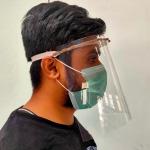Several months ago, there was speculation that SARS-CoV-2, the coronavirus that causes COVID-19, was created in a Chinese bioweapons laboratory.
COVID-19
This article was originally published at Geopolitical Futures. The original is here.
News about the coronavirus is coming at us like a fire hose. Both the scientific literature and the popular media are basically all COVID all the time. Here are some recent interesting developments.
It is difficult to overstate the potential damage that a rushed coronavirus vaccine could inflict on confidence in the biomedical community.
There are several coronavirus vaccines that are currently in Phase 3 clinical trials. For vaccines, this final experimental stage requires tens of thousands of people in order to properly assess efficacy and safety.
Another day, another coronavirus controversy. Well, maybe several controversies. The latest stories keep coming so fast, that it's difficult to know what's accurate and what isn't.
One of the most famous passages from the Bible is Ecclesiastes 3:1-8, which inspired the Byrds' song Turn Turn Turn. Here is an excerpt:
As I wrote previously, I was held hostage on an extended stay in Poland from February to August due to the corona
First, let me thank Peter Attia, MD, who wrote a piece that reminded me of the definitions and words I was searching for that were mostly free of emotional connotations.
On Wednesday April 29th the Dow Jones Industrial Average rose 532 points on news that Gilead's remdesivir demonstrated a “clear-cut positive effect" in treating COVID.












